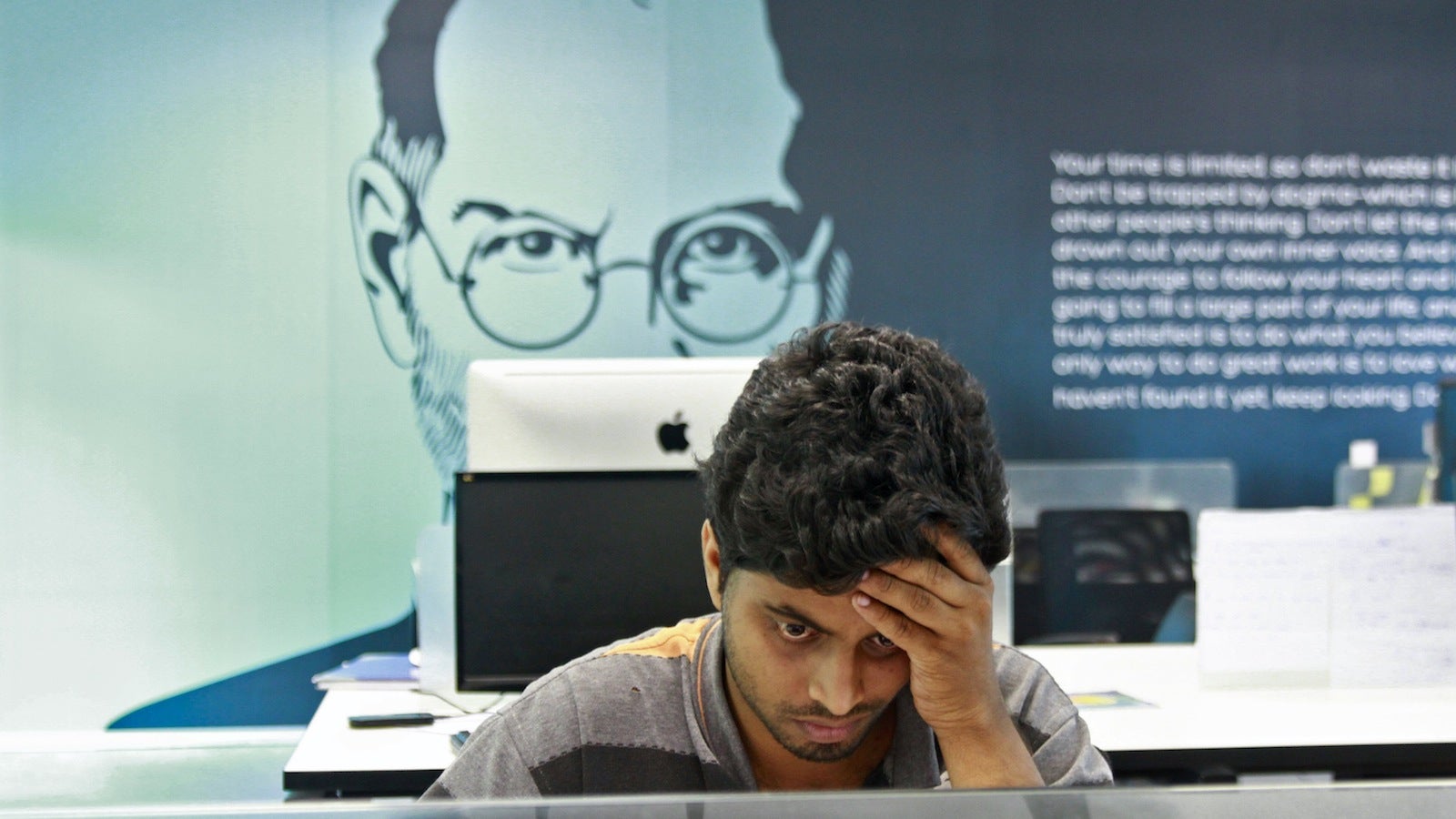Steve Jobs is a Rorschach test: To be a good leader, you don’t have to be a jerk
When one of the early investors in Uber was asked about Travis Kalanick, he said, “It’s hard to be a disrupter and not be an asshole.”


When one of the early investors in Uber was asked about Travis Kalanick, he said, “It’s hard to be a disrupter and not be an asshole.”
In a poll of investors and bankers and other people familiar with the traits of disrupters, 23% agreed.
They’re wrong, and I’m going to tell you why. But first, I want to know why so many people cling to this myth.
I was asked that question recently on Masters of Scale, Reid Hoffman’s new podcast. As I thought about it, I realized I’ve met three kinds of people who believe in Asshole Disrupter Theory.
(a) People who are already assholes. (It helps them sleep at night.)
(b) People who have gotten burned too many times. (In learning to stick up for themselves, they’ve overcorrected.)
(c) People who idolize Steve Jobs. (He’s a Rorschach test: Our reactions to him often reveal more about us than him.)
The last group is the most common, and I think they’re making a few mistakes.
Mistake 1: They’re making huge leaps based on a case study. How do we know that Jobs succeeded because of his assholic traits, and not in spite of them?
We don’t. Nastiness can have short-term payoffs but typically does more harm than good in the long run. If he had treated others better, would he still have gotten kicked out of his own company in 1985?
When asked about Jobs’ biggest shortcomings, his biographer Walter Isaacson offered: “He could’ve been kinder.” It wouldn’t have cost him anything. He might’ve even gained some loyalty from it. And it’s not a coincidence that the Jobs who came back to Apple in 1997 was kinder—I’ve heard this over and over from his close collaborators. He evolved. Although he still wasn’t warm and fuzzy, he was less cruel.
Mistake 2: confusing outward prickliness with inner selfishness. I’ve found that whether you’re a giver or a taker on the inside is completely separate from how agreeable you are on the outside. There’s little question that Jobs was disagreeable: He was critical and skeptical. Those traits can be valuable if you want to shake up a whole industry or invent a new one.
Disruption doesn’t require you to be selfish or hurtful, though. You don’t have to step on others to come up with bold new ideas and make them a reality. You can be a disagreeable giver: You criticize because you have high standards and you want to help others improve. You rock the boat because it serves the interests of customers and employees. You don’t pit employees against each other, like Uber did. You challenge them to work together to identify new problems and new solutions.
Mistake 3: assuming that there’s only one route to success. In complex systems, there’s a principle called equifinality: It means that there are multiple paths to the same end. Being an asshole may be one road to disruption, but it’s not the only one, and it comes at a huge cost to your culture and the quality of work that people do.
In an experiment with medical teams, a single rude comment from an observer was enough to slash their performance: They made 19% poorer diagnoses and carried out 15% less effective procedures. As Bob Sutton explains in The Asshole Survival Guide, treating people like dirt hurts their focus and saps their motivation. After being demeaned, people are three times less likely to help others, so you can say goodbye to the problem solving and knowledge sharing that fuel disruptive innovation. Just because Jobs got away with it doesn’t mean you can. And even if you do, what goes around comes around. On days when they act like jerks, bosses end up feeling miserable too.
In the podcast, Reid describes his test of a great culture: Does every employee feel that they personally own the culture? When people act like assholes, they pollute the culture to the point that no one wants to own it. If you’re lucky like Uber, people will call it out when there’s still a chance to salvage it.
Steve Jobs was a great role model for many things. Original thinking and nonconformity. Seeing the future more clearly than others and working relentlessly to create that future. Obsession with beautiful design and quality. Building a world-class tech company without knowing how to code. That doesn’t mean he was a great role model for how to treat others.
Disrupters are often disagreeable. But you can be disagreeable without being an asshole.